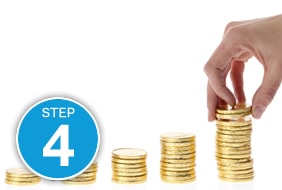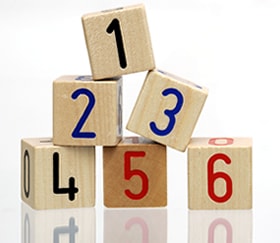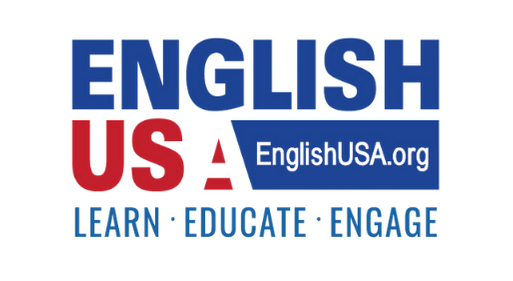Bank Information
Banks are the most common form of institution in most English speaking countries. A bank may have several branches in one city or region. Most banks are providing online services that allow their customers to do their banking from their home computers. Many larger banks are multinational; you may have an account with a bank at home that also operates globally.
What services do you need?
Banks offer a variety of financial services, including checking and savings accounts, certificates of deposit (CDs), automatic teller machines (ATMs), electronic banking, credit and debit cards, investment services, and estate planning.
Select a Bank
When selecting a bank, it is important to determine which of these services you may need. For example, if regular banking hours are not convenient for you, electronic banking or convenient ATM locations will be especially important. Select a bank that can provide the services that fit your schedule, preferences, and habits.
Select a Type of Account
If you have questions about what type of account is best for you, make an appointment with a bank official to discuss your concerns. You may discover a variety of financial services that could be very useful as you make plans for your financial future.
Manage Your Account
Handle your money carefully as what may seem like a large amount upon arrival can quickly be absorbed in daily living.
Maintain Your Account
Upon returning to your home country after completing your studies, you may wish to maintain your accounts and investments in a foreign bank. Many international alumni choose to maintain the accounts for a variety of reasons, including the tax benefits and the security and stability of financial institutions.
Typical Bank Services
Become familiar with the different bank services in foreign countries. Here are some of the terms that often used when banking overseas.
Checking Account
A checking account safeguards your money while allowing for easy payment of expenses. Some banks require their customers to maintain a minimum balance of funds in their checking accounts. Basically, all checking accounts may be accessed using an ATM card. The card is issued by the bank and may be used together with a personal identification number (PIN) to withdraw cash and make deposits at special banking machines. If you will be studying abroad for a longer period of time (more than 6 months) it is better to open a checking account at a bank in your host country.
Check Book
If you open a checking account, the bank will give you the option to have personal check books. Do not write a check for more money than is in your account. It is illegal and you will be fined by your bank as well as the establishment to which you issued the check. When cashing checks addressed to you, it is necessary to present self-identification to the bank. Your student identification card or driver's license is acceptable. Sometimes, it is difficult to cash checks from your bank if you are outside its service area.
ATM
ATM stands for Automatic Teller Machine. Using the ATM, you can withdraw, deposit, and transfer your money without going to the bank. Each time you use the ATM, record the amount and the reason why you withdrew the money. It is easy to overdraw on your account if you don't track ATM transactions.
Savings Account
A savings account is used to safeguard money for a prolonged period of time. Interest is paid on your deposit generally at a low rate. Although certificates of deposits (CDs) pay a higher amount of interest than savings accounts, you must leave the money untouched for a specified period, which is typically several months or years. The longer you leave the money on deposit, the higher rate of interest is paid.
Bank Statement
Bank customers receive periodic reports, or "statements" of deposits, withdrawals, and interest paid. For most types of accounts, the statement is sent directly from the bank to your mailing address each month or quarter. It is your responsibility to review the reports for accuracy.
Credit Card
Your bank may offer you a credit card with a charging limit. Credit cards are very convenient, but you should use them with caution. Money you charge is money you must repay, often at high interest. Credit cards are best reserved for emergencies. If your stay abroad will be short in length, it is to your advantage to create an international credit card while in your home country. Not only can an international credit card be used to conveniently withdraw money from an ATM overseas, but it is also a valid form of self-identification.
Transfer Money
If you would like to have funds transferred electronically-or "wired" from your home country to your bank overseas, both banks must be able to send and receive the transfers. Verify with both banks that this is possible. If you choose to have funds wired between banks, be aware that service charges and currency exchange rates will change the amount that is credited to or debited from your account. One advantage of using electronic transfers is that the funds are usually available for use without the delays associated with paper checks.
Handling Money Safely
Always use caution when handling money. It is best not to keep large amounts of cash on you or at home. Many students have had large sums of cash stolen or lost. Be careful that this does not happen to you! Also, look after your credit card number and expiration date making sure that they do not fall into the hands of others.
Check Point 1
Determine how much cash you will spend in a given day and carry that amount, plus a little extra that can be used in an emergency. Carry the cash in more than one place, in case your pocket is picked. Men should carry their wallet in a front pocket; women should keep their wallet or purse with them at all times. When in public places, such as a restaurant or library, do not place your purse on the back of a chair where it may be easily accessible to pickpockets. Do not leave your wallet in your coat when you hang it on a chair or coat rack. Do not keep your wallet in a backpack. When making a purchase, double-check the total to make sure it was calculated accurately. Count your change when it is given to you to make sure you received the correct amount.
Check Point 2
Use good judgment when banking at an ATM. Close the door behind you when you enter or exit an indoor ATM area. Avoid using machines late at night, especially if anyone suspicious is near. When you use an ATM to withdraw cash, do not count your money in front of the machine where others can easily see how much you have. Put the money away and count it in a private place.
Check Point 3
There are slight variations in how ATMs work. Some require you to insert your card for the entire transaction; others scan the card and return it to you immediately. Follow the instructions on the screen carefully. Do not walk away from the machine until it has completed your transaction and the screen indicates that the machine is ready for a new customer. Keep all ATM receipts for your records. Do not give your PIN number to anyone, even a close friend or roommate.
Check Point 4
When writing checks, leave no areas blank. Do not write and endorse a check for cash until you are inside the bank.
Check Point 5
If your checkbook, ATM card, or credit card is lost or stolen, notify the bank as quickly as possible. Many banks have policies that limit your liability for unauthorized purchases or withdrawals if you notify them promptly. Most banks have a toll-free, 24-hour phone number you can use for emergencies.
Tips for Handling Your Money
It is your responsibility to keep up with your accounts. Review your accounts on a regular basis to make sure that neither you nor the bank has made a mistake. You have the right to obtain copies of records detailing activity on your accounts, although a fee may be charged for this service.
There may be a limit on how much money you can withdraw from an ATM at one time or on one day; check with your bank. A service fee is often charged when you use a bank's ATM where you do not have an account.
Pay bills on time. Companies often assess a fee for late payment.
More Bank Services
In addition to the standard, many banks provide additional services, such as those listed below. Banks may charge fees for some of these services.
Access to Canceled Checks
Service where your past checks, whose amounts have been deducted from your account, are organized and again presented to you.
Cashier's Check
Special check issued directly by the bank cashier using funds from your account. It can be used when your personal checks are not accepted (e.g. buying a car or house).
Check Cashing
Withdrawal of funds from your account by writing a check in exchange for cash.
Checking Reserve
Ensures there will be funds in your account at all times to prevent overdrafts.
Credit Reference
Statement provided by the bank to give a third party information about your credit history.
Draft
Money is deducted from your account instead of your paying it in cash.
Foreign Currency Exchange
Changing local currency for foreign currency or vice-versa. Most banks have a limit on the amount that can be exchanged at one time. Exchange rates may differ from bank to bank.
Loans
Borrowing money from the bank, which must be repaid within a specified amount of time with interest added.
Money Orders
Form of check purchased with cash; often used when sending money by mail.
Night Deposit
Located outside the bank, a night deposit provides a way for customers to deposit cash and checks after the bank has closed.
Notary Public
Person who verifies the authenticity of documents.
Safety Deposit Boxes
Secured boxes located in a bank vault where bank customers can store valuables (important documents, jewelry, etc.)
Traveler's Checks
Special checks purchased at the bank, used in place of cash or personal checks when traveling. Traveler's checks require your signature in order to be cashed.
Watch Signature
Ensures that forged checks are not being deducted from your account.
Some Common Banking Terms
Auto Debit
Funds are withdrawn automatically from your account by another institution (for example, a credit union to which you owe a monthly amount for a car loan).
Balance
Amount of money you have in your bank account. When used as a verb, refers to the process of comparing your checkbook register to the monthly statement you receive from your bank.
Checkbook
Booklet that contains checks, deposit tickets, and a check register or ledger. Obtained or ordered from the bank when an account is opened. The check register is used to keep a personal record of funds in the account.
Credit
Deposit of funds to a bank account.
Credit Union
Institution that provides banking services to its members.
Debit
Withdrawal of funds from a bank.
Debit Card
Plastic card used in place of cash, checks, or credit cards to pay for goods and services which draws directly from your account.
Direct Deposit
Electronic deposit of funds into your account by another institution (such as your employer).
FDIC Insurance
In the U.S. protection for your accounts (up to $100,000) offered by the U.S. government. Developed to restore confidence in the banking system after the stock market crash of 1929.
Insufficient Funds / Overdraft /"Bouncing a Check"
Writing a check for more money than is in your account.
Personal Identification Number (PIN)
Security code used with your ATM card.
Service Charge
Fee the bank withdraws from your account for various services.
Stop Payment
Order from you to your bank to prevent a check you have written from being deducted from your account.
Teller
Bank employee who handles the exchange of money.
Truncated Checks
Processed checks that are not returned to you with your bank statement. Instead they are kept on file at the bank.









